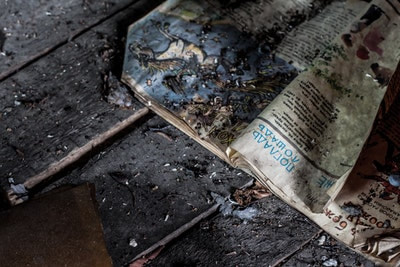|
In North Carolina, there is a presumption that a lost will has been revoked. However, there is a procedure in place to overcome that presumption and probate a lost will. This procedure is not found in any North Carolina statute, but it is a product of case law over the years. The executor or beneficiary starts the process just the same as if he or she were going to probate an original will – by filing an application for probate with the Clerk and submitting a death certificate.
However, the clerk will require evidence of the following four items: 1. Proper execution of the will. The best way to do this is to produce a copy of the lost will and have the witnesses and notary public provide affidavits testifying that the will was properly executed. As you can imagine, if the will is very old, sometimes problems will arise if witnesses are dead or unavailable. The executor may have to provide some other evidence, like the testimony of the drafting attorney or the attorney’s secretary. 2. The contents of the will. Again, producing a copy of the lost will is the best way to satisfy this requirement, but there have been cases where the court has allowed a witness to testify about the contents of a will. 3. The will was not actually revoked. The executor must provide evidence that the will was lost or destroyed and that the loss or destruction did not occur because the testator decided to revoke the will by throwing it away or destroying it. The executor can produce evidence describing the circumstances surrounding the loss or destruction (for example, that the testator’s house burned down a few years before his death or that he moved houses and must have lost the will during the move). 4. There was a diligent search for the will in the places it would most likely be found and it was not found. So what should you do if you lose your will? If you realize it is lost while you are still living, you need to re-execute a new will so that you can save your family time, money (because they will probably have to hire an attorney), and headache. Furthermore, there is no guarantee that your loved one would be able to satisfy the four above requirements, and the Clerk may not admit your will to probate. If you are the executor and you know that the deceased had a will, you should check for a safe deposit box at the testator’s bank or a safe or fire box at the testator’s home. These are the most common places for someone to keep an original will. You should check any important papers in filing cabinets. If it cannot be located, you should try to track down the attorney who drafted the will in an attempt to obtain, at the very least, a copy of the will to probate. The procedure for probating a lost will is easier if there is a copy. If you are currently dealing with any of these issues, please give Jesson & Rains a call for assistance.
2 Comments
Reginald Goodson
2/11/2019 10:37:15 pm
Can you provide the citation for the case that establishes the 4 prong test cited in your article, What If My Will Is Lost?
Reply
Kelly Jesson
2/12/2019 04:10:57 pm
Reginald, great question! Here's the cite: In re Will of McCauley, 565 S.E.2d 88 (2002).
Reply
Your comment will be posted after it is approved.
Leave a Reply. |
Subscribe to our newsletter.AuthorKelly Rains Jesson Categories
All
Archives
July 2024
|
|
SERVICES |
SUPPORT |
©Jesson & Rains, PLLC ALL RIGHTS RESERVED.


 RSS Feed
RSS Feed

